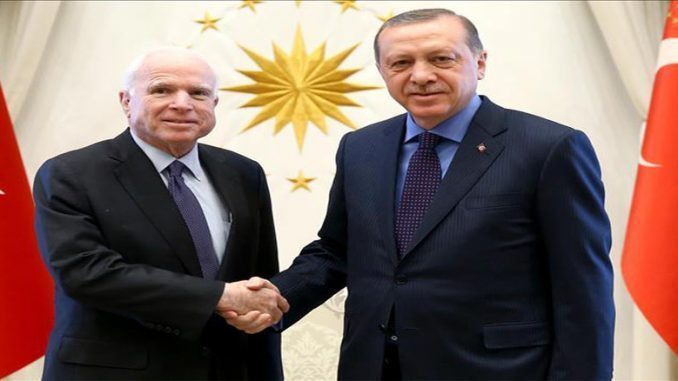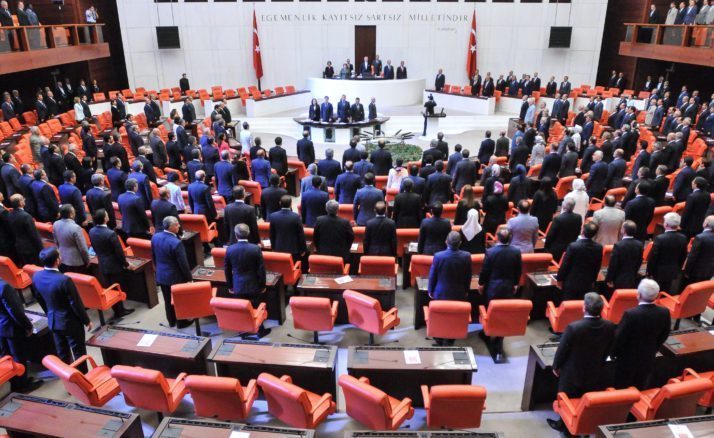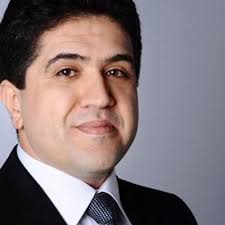
John McCain says Washington-Ankara alliance ‘more vital than ever’
“I had a warm and constructive meeting with President Erdogan today. I have been a longstanding champion of the U.S.-Turkey alliance based on shared democratic values,” McCain said in a statement late Monday. “As we see growing disorder in Europe and the Middle East, I believe this alliance is more vital than ever.”
The senator suggested that the newly-inaugurated U.S. administration would help the country “review and reassess” its current policy in Syria.
“The United States must work with Turkey to deal a rapid and lasting defeat to ISIL as part of a broader strategy to strengthen U.S. allies and partners, counter the malign influence of our adversaries, and build a favorable balance of power in the region,” McCain said, using another name for Daesh terror group.
He said Erdogan “described a proposal to establish safe zones in Syria and retake Raqqa that should receive serious consideration by the United States”.
The senator added he was looking forward to working with American and Turkish partners on “this and other ideas to improve the situation in Syria”.
Ankara has long criticized parts of the previous U.S. administration’s Syria policy, lamenting that its calls for internationally-enforced safe zones inside the war-torn country were falling on deaf ears.
McCain followed family tradition into the Navy and was a war hero during the Vietnam War. He has represented the state of Arizona in the U.S. Senate since 1987 and ran unsuccessfully against Barack Obama in the 2008 presidential election as the Republican nominee.
Expectations from the US
Trump’s administration has a “good opportunity to make bold moves” in his foreign policy after the previous administration’s “disregardful” attitude, Ayse Sozen Usluer, head of international relations at the Turkish presidency, said.
She added the new administration would assess anew its relationship with Turkey regarding trade, military, the fight against terror among other issues and “take new steps to improve relations”.
Ankara hopes Trump is “the man who can deliver (a rapprochement) to them, so they’re quite obviously withholding any criticism of him even though his rhetoric in multiple cases is completely against everything they stood for,” said Aaron Stein, resident fellow of the Atlantic Council’s Rafik Hariri Centre for the Middle East.
“I’m not sure that the Trump administration is hearing them yet,” he said.
Well-connected Turkish columnist Abdulkadir Selvi wrote Ankara wanted good start with the Trump administration “but at the same time, it is cautious”.
Fadi Hakura, Associate Fellow at Chatham House in London, said the “thin-skinned” leaders would have major policy differences, particularly over political Islam.
“This current love affair is short-term, tactical and ad-hoc,” he said.
Erdogan’s spokesman Ibrahim Kalin said the Trump adminstration was taking the Gulen issue “more seriously” although there has yet to be a clear sign in Washington of a change in attitude.
Stein said although Trump would not be able to extradite Gulen as it is handled by the US justice department, the Turks wanted “more pressure” on the Muslim cleric.
Hakura of Chatham House said Turkey’s key conditions — the extradition of Gulen and Washington ceasing all cooperation with the YPG — were unlikely to be met in the medium or long term.
“The greater likelihood is a rupture in relations… rather than a continuation of the current pantomime.”



